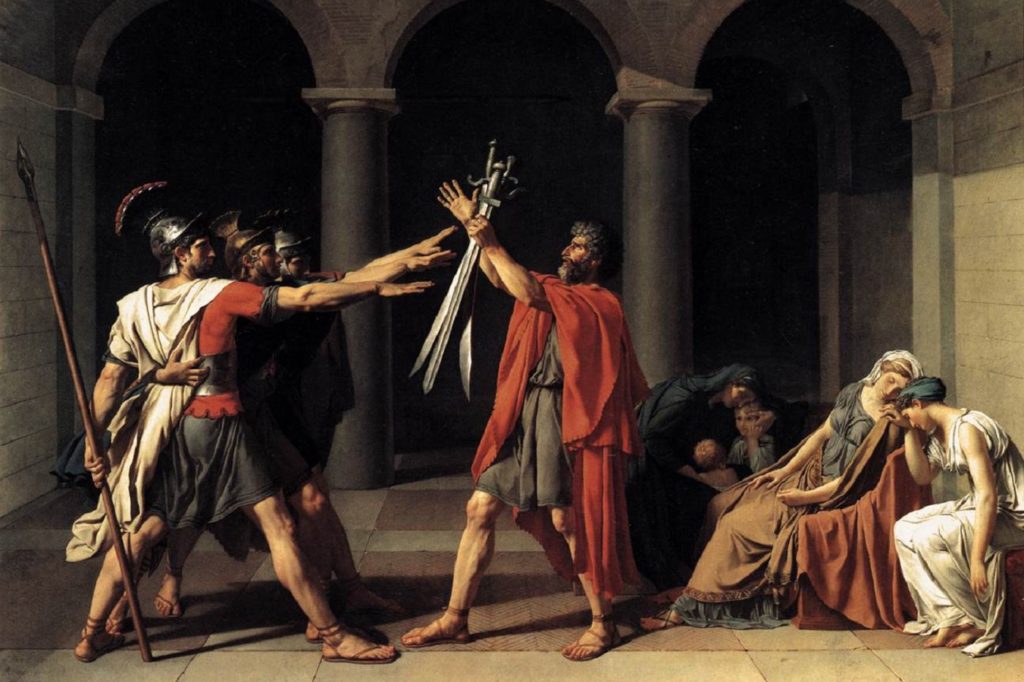As Dean of Students at a K–12 private school, I have occasion to see ways in which parents are tempted to abandon virtue for amusements, seeking to make life as agreeable as possible for their children.
Recently, I had a meeting with parents who were considering pulling their child from the school because of how he was feeling about the year. Apparently, school should be fun, enjoyable, and agreeable, but school hadn’t been particularly agreeable for John lately. The parents felt that challenges and struggles were obstacles to an agreeable experience rather than opportunities for growth. But it was really just that—a feeling. No serious failures of teaching or curriculum were identified, no systemic problems a teacher could repair. I noted that feeling discouraged is common in the month of February, and that there was really nothing suggesting they should pull their child from the school. My viewpoint did not prevail.
Deans like me are having similar conversations in schools all across the country, all too regularly. Why?
Charioteer or Chaos: Virtue or the Agreeable
Start your day with Public Discourse
Sign up and get our daily essays sent straight to your inbox.Plato’s Phaedrus pictures the soul as a battleground between reason and unruly passions or desires. A charioteer drives two horses: one teachable and noble and the other unruly and ignoble. If the charioteer is to succeed in the pursuit of virtue, he must learn to drive the horses. The wild horse would, if it could, cause the charioteer to forget reason, making it impossible to steer the chariot. The unruly horse would carry the chariot along by a capricious torrent of undirected emotional energy. In this case, the soul wouldn’t be “driven,” but merely careering along without direction. And yet the soul must be driven, and reason is intended to be its driver.
Contemporary culture has adopted another picture of the soul. We imagine something like an open arena, a stadium, with souls as unbridled horses running this way and that, corralled within an enclosed and safe space. Rather than discipline, we prefer the odd combination of emotional liberation and regulated safety. Children run about in whichever manner they wish, while remaining safe in the chaos. Discipline, it is thought, crushes the spirit.
These two images of the soul have different aims. One imagines virtue, however hard-won. The other imagines an agreeable life. But we cannot have both. We must decide. Do we want our children to be wise charioteers, steering their disciplined souls toward virtue? Or do we want our children to live lives of amusement and impulse, pursuing the agreeable and avoiding the disagreeable?
Below are three brief reflections encouraging parents—and schools—to cultivate discipline and virtue so that they might learn to direct their own souls well and teach their children and students to do the same.
Rather than discipline, we prefer the odd combination of emotional liberation and regulated safety. Children run about in whichever manner they wish, while remaining safe in the chaos. Discipline, it is thought, crushes the spirit.
Discipline Is Good, but Not Immediately Agreeable
Plato’s analogy presupposes that discipline is good for the soul. Many people no longer believe this. The parents I mentioned earlier were concerned that difficult and challenging experiences would wither the soul of their child. They wanted their son to be happy, amused, and free. Sadly, that kind of conversation is increasingly frequent for me (even in a great school full of wonderful parents). This is a sign of decadence and self-indulgence, reminiscent of Juvenal’s description: “The People who once upon a time handed out military command, high civil office, legions—everything, now restrains itself and anxiously hopes for just two things: bread and circuses.”
Civilization isn’t built on “bread and circuses,” however pleasant they may be. It is built on the joyful and true liberty won by discipline and virtue. When interacting with parents, I spend much of my time encouraging them to trust that discipline and telling them that some hardships can be good for their children. Even in families with excellent goals and aspirations for their children, I find many parents fear discipline more than decadence, correction more than corruption. They want the children to run free in our “safe” yet stimulating culture. It’s amusing, agreeable, and fun.
Plato, on the other hand, imagines virtue as the ability to govern one’s own soul. What is agreeable is often not what is good, fitting, or noble. Discerning the good requires training. St. Paul uses the metaphor of an athlete disciplining himself for a race:
Do you not know that in a race all the runners run, but only one receives the prize? So run that you may obtain it. Every athlete exercises self-control in all things. . . . So I do not run aimlessly; I do not box as one beating the air. But I discipline my body and keep it under control.
The race is hard, and our children must train hard to run it well.
Civilization isn’t built on bread and circuses, however pleasant they may be. It is built on the joyful and true liberty won by discipline and virtue.
Lord of the Flies
More than anything else, social media reinforce the desire for “bread and circuses,” providing an immediate and visceral enticement to engagement. Juvenal once lamented that people no longer had the sporting attitude, discipline, or dogged persistence necessary for rich and genuine civic life. He couldn’t have dreamed that circuses would be sitting in every pocket, a mere swipe and thumb tap away.
Re-imagine the arena or stadium using William Golding’s imagery from Lord of the Flies. The island of groupthink that teenagers populate every day appears to be a place of liberating impulse and amusement, and has its apparent freedoms. But Golding’s island is a place of torment. It is feral. What appears to teenagers to be liberating is instead decivilizing and destructive. Quickly the unruly horses run amok. Order disappears, and into the space of their imagined liberty emerges a new and more terrifying unfreedom.
Another conversation with a parent regarding technology restrictions revealed a common misconception of how education makes progress. In the parent’s view, we progress by incorporating what is new and culturally relevant into the experience of our children, thereby “preparing” them for the world. This overlooks, however, the counterclaim. Potentially decivilizing elements in a culture will forestall progress unless we train our children to engage them in a disciplined manner. If our students have free access to social media, they become accustomed to untutored “liberties” that risk enslaving their souls. I told the parent that we restrain so that they might develop the habits necessary for liberty. But as many of these conversations go, the parent was unconvinced that such restraint was profitable.
Galloping without direction, many have come to see caprice as a legitimate source of meaning and value. Children are being told that, instead of the long process of educated discipline, there’s another way to build civilization: enlightened self-interest pursuing what is agreeable. Our past models, apparently, are corrupt, and the old values destructive of existential liberty. Thus, we need new voices and new models. And where do we find these new models? On social media. Our prophets emerge there.
If they are to be conversant with culture and properly civilized, it might seem children should inhabit this space. However, we are decivilizing our children if we don’t recognize that the true voice of wisdom is drowned out by unbridled impulse. Yes, there is energy and passion, and it seems to our children that these fora are vibrant and overflowing with life. And yet, social media provide a place of immaturity. Restraint is rare, prudence rarer. Civilization can’t emerge from this space. It is decivilizing. Social media need to be placed within civilizing order. It cannot be that out of which such order emerges.
My simple advice: civilize your children long before you allow them to inhabit the decivilizing island of social media, and make sure that they can govern their own souls.
My simple advice: civilize your children long before you allow them to inhabit the decivilizing island of social media, and make sure that they can govern their own souls.
What to Do: Restrain and Replenish
Virtue isn’t only about restraining impulses. It is also, and especially, about loving the good. In the end, virtue is liberating because it makes the soul habituated to desire and love what is good. And it trains the will to pursue these goods—with courage, sport, and élan.
In the evening I often read to my two youngest from William Bennett’s wonderful anthology, The Book of Virtues. We can’t merely restrain amusements. We must provide our children with a joyful and sporting vision of the good life. We are not pointing them merely to life, but to the abundant life. You mustn’t just take things away. Give your children something better.
Read to them. Cook with them. Listen to music with them. Travel with them. Fish with them. Worship with them. Teach them to restrain unruly impulses, yes. But also point them to joy. Help them learn to recognize and feel the warp and woof of true liberty, inwardly. Restrain, but also replenish. As a child my fondest memories are of my dad reading The Lord of the Rings and Narnia and grabbing wooden spoons to conduct Bizet’s Carmen or Sibelius’s Finlandia.
Help your children to restrain unhealthy impulses and point them to the joy and liberty that come from virtue.













